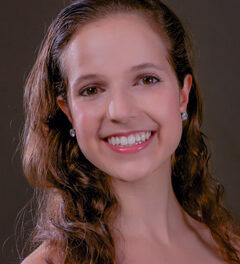One of the few joys Mozart had during the final year of his life was his last completed opera Die Zauberflöte (The Magic Flute). Along with La Clemenza di Tito, the Clarinet Concerto and, of course the Requiem, it was composed in 1791 during a period when he suffered worsening health, debt problems, and depressive episodes. The immediate success and continuous popularity of The Magic Flute was a joy to Mozart and perhaps a palliative to keep him going a little longer. He attended performances, frequently taking friends or family and laughing vigorously at the humorous situations and multi-leveled satirical commentary he and librettist Emanuel Schikaneder had put together. Within a little more than a year of its premiere in Vienna the opera (more properly – Singspiel) celebrated its 100th performance. Mozart, however, did not enjoy this milestone, having succumbed to his fatal illness several months before.
Over 220 years later, The Magic Flute continues to be one of the most popular and frequently performed operas in the standard repertoire. This performance in the intimate Carswell Concert Hall on the Meredith College campus (repeated the following night with a few cast modifications) was on exhibit as evidence of the charm and delight that accounts for the opera’s enduring popularity.
Mozart wrote the opera for Freihaus-Theater auf der Wieden with which he had been involved with some friends for a couple of years. He knew the cast and the talents and abilities of those who would perform the work. Some were actors who could sing but were not well trained. Others were accomplished musicians, for example Mozart’s sister-in-law, Josepha Hofer, who sang the Queen of the Night. Magic Flute is a perfect vehicle to give some young and inexperienced singers an opportunity to taste the challenges and rewards of performing on the operatic stage alongside more seasoned artists – since some of the major roles must be cast with singers with a little (or a lot) more training and experience.
As a whole the cast and some individual singers seemed a little stage-conscious and uneasy at the beginning, but all gained confidence and poise as the production progressed. Special note should be made of Tamino, played by Ryan Griffin in this performance. He seemed to get stronger vocally and character-wise until at the end it was easy to say, “Yes! He has won and deserves the lovely Pamino as she has won and deserves him.” Another character that is due special mention is Papageno, played by DeMar Neal. This was obviously not his first portrayal in this role. His character came to life convincingly as though Papagano was discovering himself as he lived through the events portrayed on stage.
The challenging role of the Queen of the Night was sung in this performance by Jessica Hiltabidle, a senior pursuing a Vocal Performance BM at UNC-CH. Her arias, with Mozart’s amazing vocal acrobatics, were very well done and mesmerized the audience. Bob Dey, the personification of a true musical amateur (as in one who loves music), gave a controlled and straight-forward performance of the wise priest, Sarastro. His rendition of “In diesen heil’gen Hallen” was beautiful and deeply moving as it always should be.
Ensemble writing was obviously one of Mozart’s special genius skills, and you hear it in his writing for groups like the three Ladies of the Queen (Joanna Burke, Sarah Moore and Maegan Coble) and the three Spirits (Christina Hunt, Jessica Samples and Sarah Eichvalds). Along with other members of the cast, these trio characters provide opportunity to comment aside on the happenings on stage and, to some extent, to influence them. The ladies singing these roles in this performance did just that, charmingly and musically.
Significant contributions to the performance were made by Bob Chapman, who sang the roles of the Speaker and the Second Man in Armor; Jianghai Ho, who was the First Man in Armor; and Mark Jensen and Jamar Rasberry, who were the First and Second Priests. All four of these also contributed to the fine chorus as well. Monostatos was sung by Steven Kovacs, who was especially effective in the second act aria “Alles fühlt der Liebe Freuden”
The two love interests – Pamina, sung by Adrienne Mazzo, and Papagena, sung by Mary Royall Hight – were charming and nicely realized characters. Mazzo’s duets with Griffin were especially warm and winsome. Hight’s rendition of the falsetto old hag (really Papagana in disguise) was comedically very well done, and of course “Pa-, pa-, pa-, pa-” was the delightful gem Mozart wrote it to be.
Timing, entrances, and exits were smoothly coordinated, keeping the action moving along throughout; this is a tribute to the superb director, Ellen Williams, and her crew, headed by Stage Manager Lindsey Belote. Costumes were done with a gesture toward the 1950s by David Serxner. A small stage orchestra added a great deal to the show with special mention to flutist Andrea McKerlie and pianist Tricia Strong. Jim Waddelow was the ever-attentive, ever-watchful, ever-supportive conductor.
We lift our glass in a toast to the Meredith College Opera Workshop production of Mozart’s The Magic Flute and to the search for truth, honesty, and love to which it calls us.
Note: This production of Magic Flute was the first of several in NC this season. The next one is at UNC, on April 15-16. For details, see our calendar.











